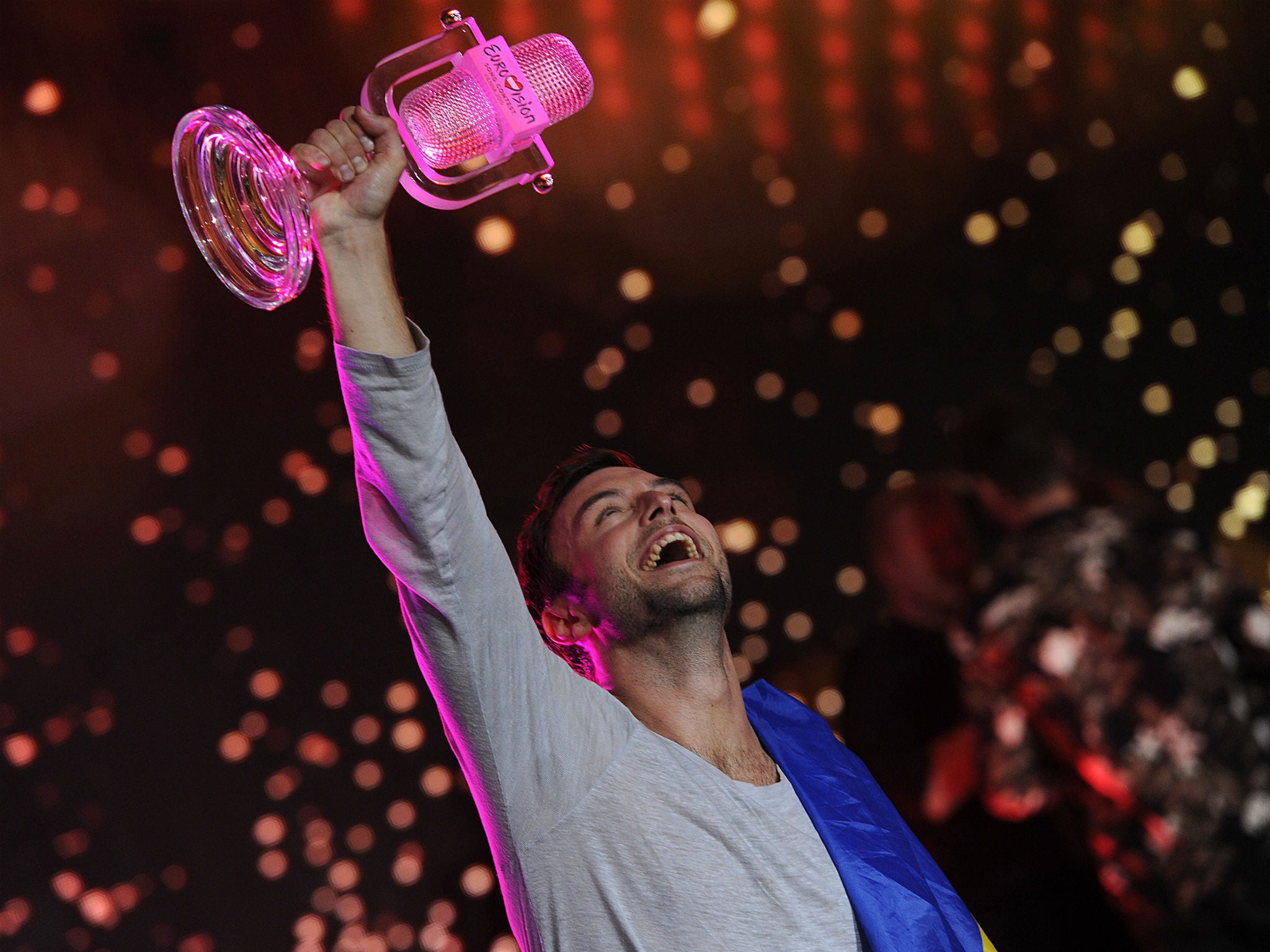Eurovision is changing - and this is why you should care
It's always been about the people and the politics, not the music or the sequinned leggings


When choosing friends, I have a simple rule: I don’t trust anybody who doesn’t enjoy the Eurovision Song Contest. I mean, really enjoy it.
The camp costumes, the terrible Europop, the tackily suggestive dance routines. The glorious lack of credibility. The heavily made-up presenters, who declare, in broken English and over a broken line, the meaningless division of points between nations. The sardonic BBC commentary on the complex relationships between Baltic states. The fact that it presents a damn good excuse to stay in on the sofa with a bottle of red wine on a Saturday night. There’s nothing about this annual celebration of European cheesiness that doesn’t make me deeply fuzzy, if not a little hysterical, on the inside.
If I had my way, David Cameron would be negotiating the terms of our relationship with EU on a stage lit by lasers and wearing a pair of sequinned leggings. My verdict? Nul points.
Fine, I’ll tolerate a bit of cosmetic snobbery around the whole thing. I understand that some people wouldn’t like to be “seen” to be enjoying such synthetic entertainment. But when it comes to it – when the wine is poured, the telly turned up and the woman in the hotpants wailing – then if you’d rather leave the room than settle in for four long hours of silliness, that is the moment we part company.
Hopefully the number struck off my list of candidates for friendship will shrink this year, after the organisers of Eurovision hyperbolically announced that the voting system would be overhauled in the “biggest change to the Eurovision Song contest since 1975”.
So from May 2016, when the next one will be held (start hoarding your halva, sauerkraut and retsina now), each nation will offer up two sets of scores in the final showdown. Instead of presenting a score that combines the votes of an “expert panel” and those cast by viewers at home, two different sets of scores – the official diplomatic verdict, and then what the people really think of the songs – will be dished out. The change will “inject new excitement in the contest” the organisers explained in fittingly awkward terms.
Now we’ll be able to see exactly where the micro-politics stops and the pan-European house party begins – and there’ll be no excuse if you don’t find this year’s rundown of wannabes and wash-ups properly hilarious.
My own fascination with Eurovision goes back to the late spring of 2000, when, on opening up my A Level general studies examination paper, I discovered that my choice of essays included a question on Eurovision. I can’t remember the exact wording, but it went something like this: “The Eurovision Song Contest is among the most widely mocked of cultural events. Explain, then, why it retains its popularity across the continent.” Where to start? I won’t regurgitate my full response here (it was probably facile anyway), but the answer is this: it’s the people, and it’s the politics.
There’s no quicker way to understand post-Soviet Europe than watching the scores fall in each May. “Georgia, 12 points.” “Thank you Minsk, and now we go over to Anastasiya in Tblisi.” “Hello, can you hear me? Yes this is Anastasiya. And 12 points from Georgia go to... Belarus.”
Of course they do. Now everyone take a shot.
Eurovision brings the people together, reminds them exactly what has separated them, and then brings them back together again. It’s the most humane television show you’ll see all year. This year, with viewers’ scores set to count as highly as the political votes, there’s even an outside chance the UK could win again.
And that exam? I was awarded an A, but probably only for enthusiasm.
Join our commenting forum
Join thought-provoking conversations, follow other Independent readers and see their replies
Comments